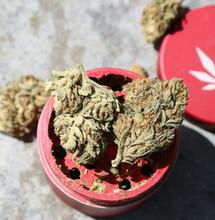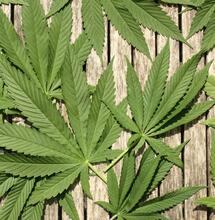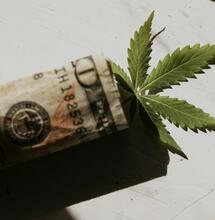Pot Holes on the Silk Road

Website acts as an open market for illicit drugs, but at what risk to buyers and sellers?
Website acts as an open market for illicit drugs, but at what risk to buyers and sellers?
In our digital era, it is not uncommon for people to shop for all types of products online, rather than by mail or a visit to a brick-and-mortar location. What may surprise you, however, is the enterprising Silk Road Anonymous Marketplace website, which acts as a sort of online market for illegal, pirated or banned substances. Functioning in a similar manner to e-Bay or Etsy, buyers can choose from an astonishing menu of drugs, ranging from Cannabis, LSD and magic mushrooms to GHB, Oxycontin and even heroin. Recent studies suggest that Silk Road trades in over one million dollars of drug products per month.
Very few restrictions are imposed upon what is allowed to be sold - although the weapons and ammunition ban was enacted in March of last year, when such products were moved to another website. Wired.co.uk notes Silk Road's terms and conditions: "Do not list anything who's [sic] purpose is to harm or defraud, such as stolen items or info, stolen credit cards, counterfeit currency, personal info, assassinations, and weapons of any kind. Do not list anything related to paedophilia [sic]."
|
Prescription pills account for the majority of drugs sold on the site (WikiMedia Commons: Tibor Kádek/Kandy Talbot) |
Launched in March of 2011, accessing the Silk Road URL is more complicated than a simple Google search, as it is protected by TOR (The Onion Router) network 'anonymity' - as was the similar The Farmer's Market website that was busted by the DEA in April of 2012, netting fifteen arrests. The theory is that a decentralized network of encrypting servers will relay info through the computers of various site members, thereby fragmenting, disguising and dispersing the information in an attempt to protect the people attached to it. The message or information will reach its final and intended recipient, but without revealing its origin.
The site's administrators claim an air of stealth for their customers - as well as the myriad sellers who provide the drugs. However, while buyer and seller lists are also said to be encrypted to protect their locations and other identifying details from being revealed, it is important to remember that what happens on the Internet stays on the Internet. Law enforcement officials could potentially retrieve such information, and having packages of illicit substances constantly arriving at your own front door raises the chances of being caught.
Carnegie Mellon University's Information Networking Institute recently initiated a study of Silk Road's financial growth, headed by Nicolas Christin, associate director of the Institute. Christin and his team watched the site for a six-month period, ultimately determining that Silk Road had conducted between $15 and $22 million in business between January and July of 2012, and was "overwhelmingly used as a market for controlled substances and narcotics." Some figures remain vague, due to the varying levels of security and transparency on Silk Road; sellers may even operate in 'stealth mode', hiding beneath yet another level of security, and allowing high-rated sellers with established customer bases to conduct business on an invitation-only basis.
|
Bitcoin-based coin (WikiMedia Commons: CASASCIUS) |
Such rapid financial growth reveals one potential way for site members to get caught, which is Silk Road's digital currency, known as BitCoins. Although the exchange rate for purchasing said 'coins' fluctuates rapidly from moment to moment, the prices appear reasonable and the coins are easy to both purchase and use, while instilling a perhaps false sense of security and anonymity within buyers and sellers. Hovering around eight dollars as an average, the coins have been alternately valued at nearly zero, or recently as high as $266 apiece. While this brand of digital currency could simply devalue itself (as is its inherent design), or the market could potentially disappear for BitCoins, it is more likely that legislation would be its downfall - although, as there is no central authority regulating them, it would be difficult for any one government to try to make them illegal.
Satoshi Nakamoto wrote a proposal in 2008, entitled Bitcoin: A Peer-to-Peer Electronic Cash System; the proposal became reality in 2009 when the technology was developed with the help of Gavin Andresen. Raw computer power is used to slowly 'mine' the coins from a multi-user network and production is limited to ultimately creating a finite 21 million units. Over half of the BitCoins currently on the market are tied up in Silk Road transactions.
Since the software-driven currency is not only used by Silk Road - other applications for this open-source, P2P digital currency are revealed at BitCoin.org - the people who can crack such software do indeed exist, within law enforcement and the hacker community, etc. Some tech experts warn that Americans in possession of BitCoins valued at more than ten-thousand dollars must file appropriate paperwork, such as an FBAR, thus removing the anonymity that initially attracts such users. However, in addition to hiding their digital footprints, a buyer or seller on Silk Road faces other means of discovery.
|
A vast array of Cannabis products are available from Silk Road |
In early 2013, Australian Paul Leslie Howard became the first person to be convicted of crimes related to purchases made on Silk Road; eleven separate occasions of purchasing and importing drugs levied the charges. Shipped from largely the Netherlands and Germany, the packages included Cannabis, cocaine, MDMA and amphetamine, arousing the suspicions of Australian Customs and Border Protection Service, who began examining Howard's mail. Once the illicit drugs were discovered, federal agents swooped upon his home, where they uncovered other damning evidence, such as baggies, cash, digital scales and even thirty-plus stun guns disguised as cell phones.
Two actual, functioning cell phones were also recovered, from which forensic analysts retrieved over 20,000 text messages, including direct information relating to specific sales of drugs purchased from Silk Road. Wired.co.uk quotes a few, including, "promote the LSD I got more in. I sold 200 cubes last week," and "I got five grand worth if you want" - serving as a stark warning against sending incriminating texts or e-mails that are certain to be included as evidence, should anyone in a similar situation ever face such charges.
Australian authorities made it clear that they had been able to amass a large quantity of information on Howard from the Silk Road site, insisting they had removed the veil of secrecy that had supposedly protected site members. The United Kingdom's Serious Organized Crime Agency and Metropolitan Police E-Crime unit have also been investigating Silk Road and other sites like it.
|
Physical bitcoins (WikiMedia Commons: CASASCIUS) |
The United States provides both buyers and sellers to Silk Road - nearly half of its members - so naturally, the DEA is keeping an eye on such activities. Back in November of 2012 (at around the same time Silk Road experienced a temporary outage, prompting concern and conspiracy theories), DEA spokesperson Rusty Payne was asked about the illicit marketplace by The Verge. He responded, "Typically we're not really giving out investigative updates about what we're doing, but it's safe to say we are heavily involved in looking into that."
Several weeks later, the rumors were quelled by 'Dread Pirate Roberts', the site's operator. In a forum message he reminded members and followers, "A couple of weeks ago, we started seeing the accessibility and speed of Silk Road start to drop, especially around peak hours," but insisted that the outage was due to growth, rather than suppression. He further explained that, "Monitoring the number of incoming connections, page-views and registrations showed record breaking numbers, so the obvious conclusion was that we were getting an influx of new members that was overloading our current infrastructure."
Most people in the drug game, be they pot growers, smokers, medical patients or even mad scientists, know better than to leave a vast swathe of digital, drug-related evidence in their wake. Some people are even scared to read Cannabis magazines online. Such fears serve as a harsh contrast to those who have embraced the Internet and its magical, worldwide pathways as a means to increase their customer base, or their menu choices when buying drugs. After all, the need to find a street dealer is removed, as is the necessity of carrying perhaps large amounts of cash; in fact, one only needs to sit at his or her computer and have enough cash available in order to buy drugs from the Silk Road site. However, as our technological luxuries surround us and lock us into their addictive grasp, it is worth remembering that no easy or cheap score is worth having a SWAT team smash in your front door.
Read the CMU study: Traveling the Silk Road: A measurement analysis of a large anonymous online marketplace at http://arxiv.org/pdf/1207.7139v1.pdf.



